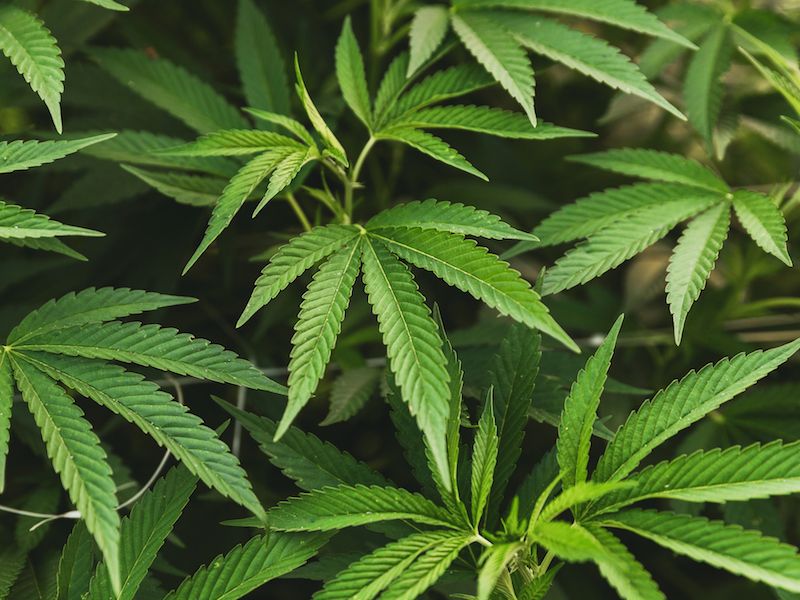
Public opinion surrounding marijuana and cannabinoids have transformed incredibly in the last several decades. THC, cannabinoids, and even marijuana are legal for medical application in most states. Ten or fifteen years ago it would have been unimaginable for marijuana to be legal for recreational usage but some states have even passed this law.
A group of compounds derived from the cannabis plant (the marijuana plant, basically) are known as cannabinoids. New things are being discovered about cannabinoids every day despite their recent decriminalization in some states. We often consider these particular compounds as possessing universal healing qualities, but established research suggests there may also be negative effects such as a strong connection between cannabinoid use and the occurrence of tinnitus symptoms.
There Are Numerous Kinds of Cannabinoids
There are lots of forms of cannabinoids that can be used now. It’s not just pot (or Mary Jane, or grass… ok, let’s just all agree upfront that marijuana has a significant number of nicknames and move on). Oils, mists, pills and other variations of cannabinoids are currently available.
Each state has it’s own regulations regarding which types of cannabinoids you can buy, and many of those varieties are still officially illegal under federal law if the THC content is over 0.3%. That’s why some people are quite careful about cannabinoids.
We still need more study and experience before we will truly understand the long range and side effects of cannabinoids. A good example is the new insight about how cannabinoids influence your hearing.
New Research Into Cannabinoids And Hearing
Whatever you would like to call it, cannabinoids have long been connected to helping a wide range of medical ailments. Vertigo, nausea, seizures, and more seem to be improved with cannabinoids, according to available anecdotal information. So researchers resolved to find out if cannabinoids could help with tinnitus, too.
Tinnitus could actually be triggered by cannabinoid use, as it turns out. Ringing in the ears was recorded by over 29% of participants after using cannabinoids. And these participants had never had tinnitus symptoms before the study. Furthermore, marijuana users were 20-times more likely to report having tinnitus symptoms after 24 hours.
And for individuals who already suffered from tinnitus, marijuana use made it worse. So, it seems rather certain that cannabinoids and tinnitus aren’t very compatible.
How Cannabinoids Make Tinnitus Worse
Your tinnitus can be intensified by cannabinoids in a couple of concrete ways. First off, the incidents of tinnitus symptoms can get more frequent, you could notice the ringing or buzzing in your ears more persistently. Cannabinoids can also cause tinnitus symptoms to become more overwhelming. The discomfort from the ringing could get more noticeable or harder to ignore.
The research also appears to reveal that cannabinoids are capable of causing the development of the initial symptoms of tinnitus. Or, said another way: after you start using cannabinoids you could start to experience tinnitus symptoms even if you had no symptoms before.
The Causes of Tinnitus Are Unclear
We recognize that there’s a link between tinnitus and certain triggers but we’re still uncertain what the actual underlying causes are. That cannabinoids can have an affect on the middle ear and on tinnitus is pretty clear. But what’s causing that impact is much less clear.
But we do know that marijuana is one of the few commonly used mood-altering substances that causes tinnitus (alcohol, for example, hasn’t been demonstrated to have a strong connection to tinnitus).
Research, undoubtedly, will continue. People will be equipped to make a practical choice concerning which of the many forms of cannabinoid to go with as we gain deeper insight into their link to tinnitus.
The Miracle Cure Beware
There has certainly been no lack of marketing hype surrounding cannabinoids lately. That’s partly because mindsets are changing about cannabinoids (and, to some extent, is also a reflection of a desire to move away from opioids). But cannabinoids can and sometimes do produce undesirable effects, based on this new research, and this is particularly true concerning hearing.
You’ll never be able to steer clear of all of the cannabinoid enthusiasts and evangelists in the world, the marketing for cannabinoids has been very aggressive.
But this new research definitely suggests a strong link between tinnitus and cannabinoids. So if you suffer from tinnitus, or if you’re concerned about tinnitus it may be worth avoiding cannabinoids if you can, regardless of how many adverts for CBD oil you might run into. The link between cannabinoids and tinnitus symptoms has been quite firmly established by the research, so it’s worth exercising a little caution.
